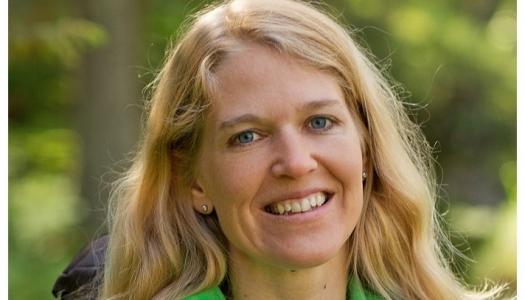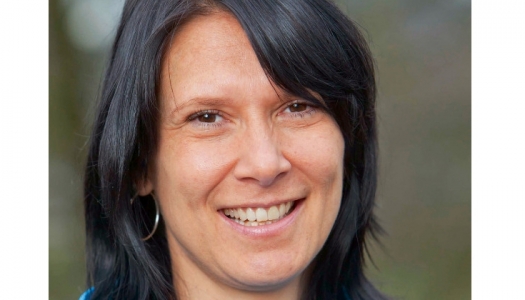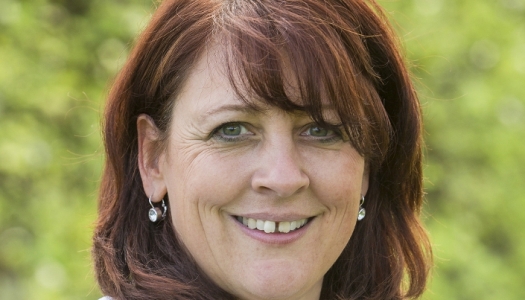
Our award-winning sustainability strategy
VAUDE as a pioneer in sustainability
Environmental and social issues have always played a role at VAUDE. A few years ago we decided to become a thoroughly sustainable company. Today much of our competition in the outdoor industry today is also engaged in sustainability. We are pleased that VAUDE is considered a pioneer in this. From our viewpoint, there are a number of reasons for this:
- Our approach is holistic and highly integrated: there is not a single area or business decision made that is not related to sustainability – see The VAUDE Ecosystem.
- In all sustainability issues we apply the strictest existing standards or define our own, even stricter guidelines, such as bluesign® system partner or even with our Green Shape Evaluation System. See bluesign® Materials are First Choice and Respect for People and Nature.
- We promote sustainability issues even when there is no pressure from the outside, for example, from media or NGO environmental campaigns.
- Awards by independent bodies confirm our leadership in sustainability. See Our Awards.
In 2015, we were elated to receive the highest award at the prestigious German Sustainability Awards and were given the winning title "Germany's Most Sustainable Brand 2015".
The jury praised both our consistent pursuit of sustainability as well as the continuous development of sustainability issues.
“At all levels of value creation, sustainability is placed in the foreground. VAUDE sets standards for sustainable products with programs such as the Green Shape label or its Fair Wear Foundation “Leader status” for fair working conditions. [...] Despite the small size of the company, the VAUDE brand is a strong, successful and trusted brand among all of its stakeholders.” reported the jury’s verdict. See VAUDE is Germany's Most Sustainable Brand.
VAUDE as a driving force for sustainability
We are delighted that many of our competitors are also committed to sustainability because important steps are only possible through industry involvement. Our sustainability management is unique because we do not only seek out individual aspects that serve as powerful communicating messages; we work comprehensively with a deeply integrated system. Our activities run through all phases of the product lifecycle. See The VAUDE Ecosystem.

|
»We want to be a sustainable company through and through. We are coming a little closer to this vision every year.« Antje von Dewitz, CEO
|
Sustainability at VAUDE: a mandate for all employees

|
»My work as a production manager includes the fact that I feel responsible for fair working conditions.« Susanne Medesi, Purchasing Manager/Production Management & CSR
|
In all divisions, it is considered important that knowledge about sustainability is not just with the experts. As part of our training program, we train all employees specifically on the issue of sustainability. See Training and Professional Development
Tools for constant improvement
Our VAUDE ecosystem, the EMAS and ISO14001 certifications and the GRI report standards help us holistically and systematically to identify, develop the environmental aspects of our business operations, evaluate how relevant these are and what influence they have, and decide how we can tackle challenges.
In 2014 we created and published a Common Good Balance Sheet in addition to our Sustainability Report. New inspiration for monitoring our business activities in light of sustainability arose out of these report standards.

|
»With the Economy for the Common Good Balance Sheet, we want to contribute to a paradigm shift for good business.« Antje von Dewitz, CEO
|
Current challenges
Despite our success, we continue to further develop the sustainability of our products and also the entire company. This provides us constantly with new challenges. The following is an overview of the main issues that we are currently working on.
Supply chain challenge
Producers and material manufacturers in Europe and Asia play a special role in this issue. The dangers here are significantly greater there than from our business operations at our headquarters in Tettnang. Working conditions must also be carefully checked in these countries. At the same time, a particular challenge is to influence these impacts.

|
»Through strategic partnerships such as with bluesign® we can achieve more transparency in our supply chain and help our partners (suppliers and producers), one of their processes sustainably.« Bettina Roth, Head of Quality Mangement
|
Collaborations with external partners such as the "Fair Wear Foundation" (FWF) and bluesign® help us to meet our own demands as well as those of our production partners. The main objectives regarding the development of the supply chain are for us in the coming years:
- Establishment of an Environmental Management System focusing on Chemicals Management incl. wastewater management
- Increasing the transparency of our supply chain
- Maintaining our audit rate with the FWF.
Sustainable business challenge
As another challenge, economic sustainability is becoming a stronger focus. The outdoor industry has been growing at a very minimal level for some years, and has become a highly competitive market. For us as a family business in an industry that is dominated by ever larger companies backed by strong financial investors, sustainability is a means for securing economic independence with careful planning and the use of alternative financing options. See Sustainable business is worthwhile.
Data availability and software systems challenge
The key to establishing a successful sustainability management system is the accessibility to knowledge and data on one’s own sustainability performance. In order to increase our efficiency and control it even more precisely, the challenge will lie in the continued development of our IT landscape over the coming years. This includes, for example, the switch to a new ERP system and the introduction of corporate management software that integrates sustainability management.
Consistent development through continuous objective setting
To overcome these challenges, we continuously set ourselves targets which we evaluate every six months. Our sustainability goals are fully integrated into the company's goals, and bonus payments to the employees are partly dependent on the achievement of sustainability goals. See Our Goals in Detail.
Sustainability as a social issue
Sustainability has become an important social issue in recent years. Many customers seek out specific information before they decide to buy a product. We also regularly receive critical inquiries about our products, production conditions as well as about our company. Our aim is to meet this rising awareness with comprehensive reporting. Therefore, we report extensively and transparent about our sustainability activities and also maintain direct contact with the consumer. See Customer Satisfaction.
The issue is heating up in politics as well. VAUDE relates clear political positions and participates actively in the political discourse. See Political Work.
Although the "Bündnis für nachhaltige Textilien" (Partnership for Sustainable Textiles) hasn’t been able to meet all expectations in its first steps, there is a growing awareness of the problem and legal regulations are expected in the future. As a founding member, we are actively engaged in this alliance.
All these developments are cause for us to strengthen our strategy and double down on our commitment and efforts. Above all, they encourage us to further expand our activities in the fields of action available to us.
| GRI: | G4-1 |






